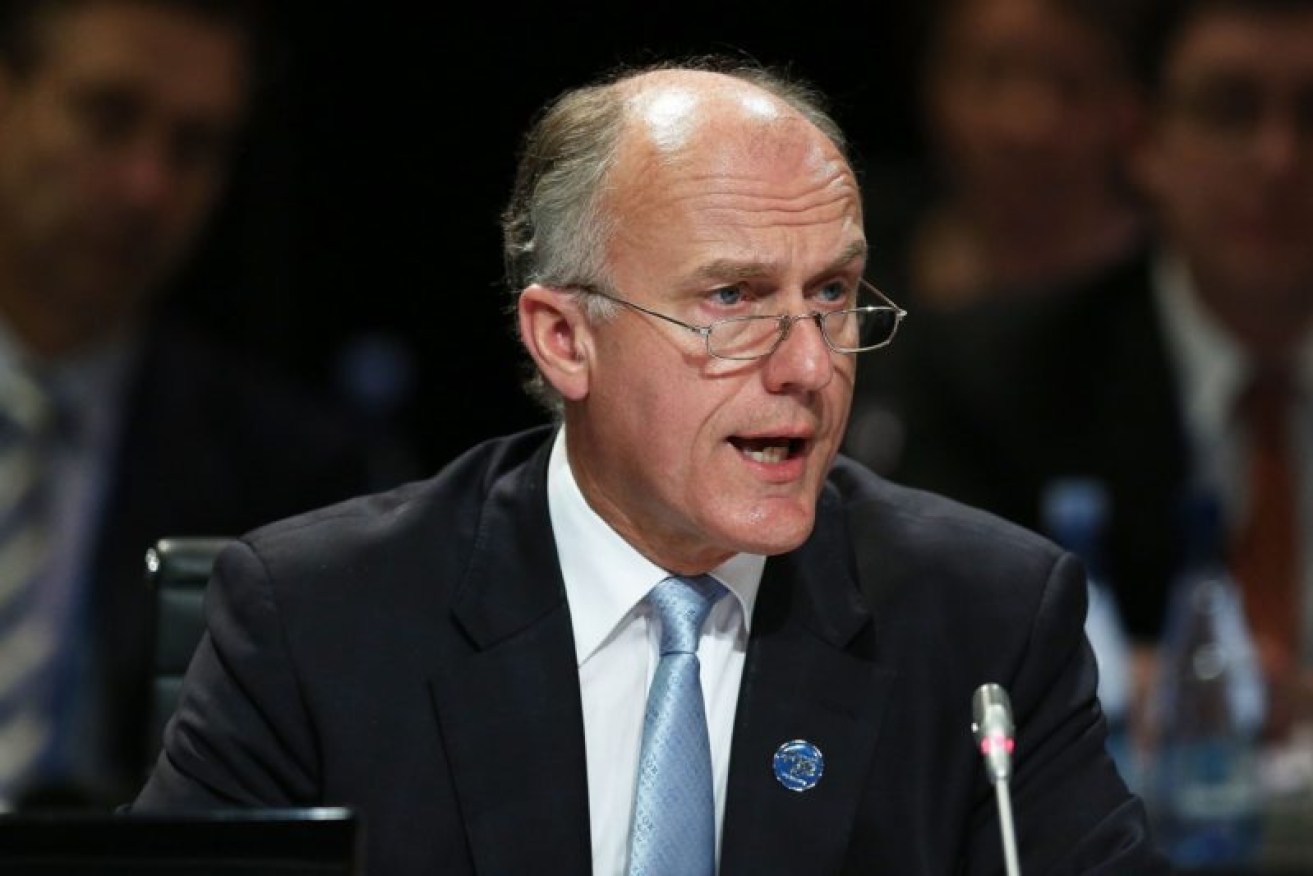Abetz keeps pressure on Turnbull over super policy


Eric Abetz has waded into the penalty rates debate. Photo: AAP
The conservative arms of the Liberal-National parties are maintaining the pressure on the Turnbull government over superannuation.
Tasmanian Liberal Senator Eric Abetz this week again publicly attacked plans to cap after-tax superannuation contributions at $500,000, backdated to July 1 2007.
Speaking on ABC Radio this week, the Senator not only attacked the plan to cut after-tax caps, he appeared to rule out any change to the super rules introduced by then Treasurer Peter Costello back in 2006.
He told the ABC “we should encourage the Australian people to save and reduce expenditure and lifestyle today to make provision for 10,20, 30 years, hence to not be a burden on the taxpayer.”
“It was good policy under Howard and Costello and I believe it is still good policy,” Senator Abetz said.
The super debate has been constantly kicked down the road since the Turnbull Government’s narrow election victory on July 2. A party room brawl was avoided in mid-July when the Prime Minister deferred any decision on the policy to a later date.
Super delayed again
Now that the government has moved to bring forward its omnibus bill comprising $6.5 billion in spending cuts, super has again been sent out for further discussion and a final legislation won’t appear till October at least.
The Treasurer, Scott Morrison said “we are continuing those discussions (on super). It’s a very complex piece of legislation and it will come before the Parliament later in the year. We continue to work that through,” he told Radio 2GB on Tuesday.
The Treasurer is believed to be offering to boost the cap on after-tax contributions to $750,000 from $500,000, but is demanding the start date remain July 1 2007. That measure is being criticised as retrospective by both Coalition dissidents like Senator Abetz and Labor and Greens members.
The government’s non-concessional cap plan would save the budget $500 million over the four years of the forward estimates. The whole package would deliver $2.9 over four years as well as funding the Low Income Superannuation Offset that will mean those earning up to $37,000 don’t pay more tax on their super than on their income.
Negotiations are complex because Mr Morrison is demanding that any ground he gives on the after-tax caps be made up through other savings within super. That could be as much as $250 million.
Senator Abetz said a compromise was not out of the question despite the hard line he is pushing. “I am more than wiling to work with the Treasurer and others to see if we can come to a situation that is acceptable and I have every confidence that we can.”
ASFA aims at concessional changes
The Association of Superannuation Funds of Australia also re-entered the super reform debate. Interim CEO Jim Minto told The New Daily that while ASFA broadly agreed with the thrust of the proposals “there are several elements of the package we believe could be improved to provide for a fairer and more sustainable superannuation system.”
ASFA argues that concessional or pre-tax caps should be maintained at current levels of $30,000, or $35,000 for those over 50, rather than being cut to $25,000 as the government proposes.

Jim Minto wants savers to write super cheques. Photo:Facebook
While ASFA supports the government’s carry forward measure which allow concessional caps to be banked for up to five years “this measure would be most effective with the existing $35,000 annual cap for those older than 50 (and the $30,000 cap for those below 50),”Mr Minto said.
The catchup arrangements are not the sole preserve of high income earners, Mr Minto said.
Not only the rich contribute
“In 2013-14, 42 per cent of those who made contributions above the proposed $25,000 cap per annum had incomes of less than $100,000 and we are also aware that 35,000 women with less than $200,000 (in super) made contributions over $25,000,” he said.
“Flexibility in the system to make larger contributions later in life is important because work patterns, retirement ages and peoples’ income vary considerably. Many individuals due to health issues or care responsibilities have to retire well before Age Pension eligibility age,” Mr Minto said.
Mr Minto said ASFA accepts the $500,000 non-concessional cap but would prefer to see it set at $1 million and also criticised the retrospective aspect of the measure. “We consider making the change prospective would provide confidence in the system.”
ASFA believes the proposed changes to non-concessional caps would affect about 80,000 people while the concessional change would affect 500,000 people.








